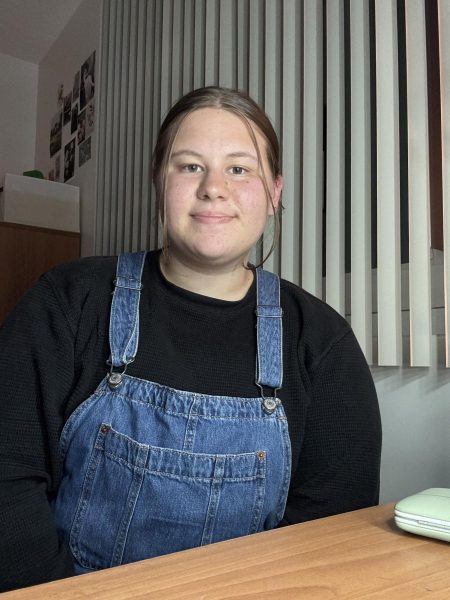If you were to walk into a Barnes and Noble today, you would more than likely run smack dab into a table that reads #BookTok. What started off as an online community where readers could connect with each other on the basis of a shared interest has now impacted the book selling and publishing industry alike.
The problem itself does not lie in the ability to forge bonds with those across the country, but rather in what the BookTok community is promoting and glorifying with each post made. The overwhelming genre that gets featured on this social media platform is romance.
While romance books can be a great way to decompress or enjoy a good palate cleanser in between other styles of books, the issue arises with the type of romance that is being constantly advertised: dark romance.
The majority of romance novels recommended across BookTok are those which contain domestic violence and generally toxic relationships. Combine that with the fact that a large demographic of TikTok users are young teens, people need to take a step back and think about what is being broadcast to impressionable children.
If novels that glorify domestic violence, like that of Colleen Hoover books, are being spread across the community and boosting her book sales, what is the TikTok niche really standing for in their literature choices?
Continuing with Colleen Hoover as an example, if you were to look at a Goodreads comprehensive list of “Toxic Relationship Books”, four of her books are featured on the first page alone. Regardless, Hoover’s books have risen to the New York Times bestseller list and gained widespread popularity, predominantly because of TikTok. If there is a place to nerd out over everyone’s favorite book choices, why are we giving those spreading toxic messages a platform?
Some have specifically said that the book recommendations on TikTok are igniting “Pseudo-feminism.” This means the mainstream “romance” books are convincing young women there is justification for being abused, especially if someone has a reason for it, to name one example. Or, on a different facet of sexism, popular fantasy books endorse the idea that the only way a woman can be considered strong is by physicality.
Even in the instances where a female main character is stereotypically tough, the male counterpart is still going to be the dominant gender, falsely glorifying basic misogyny. These books, like that of “A Court of Thorns and Roses” by Sarah J. Maas, promote codependency and controlling behavior from a male character. The authors then promote these novels as being feminist works, creating a false impression of what female autonomy is.
Other critics of BookTok claim there is an apparent shallow aspect of the community, in which the aesthetic of being a reader overshadows actually reading books. The types of books that are highlighted on TikTok bring little variation and feature repetitive plots in different covers. This is not to shame the writers, but when only one type of book is being promoted, it is hard to find diversity in the actual recommendations.
On top of this, those who are a part of this community are known to be overly judgmental of others’ taste in books, bringing a level of toxicity into the group. If instead, everyone appreciated differences in opinion and interests, it would be a much healthier platform where people could truly just enjoy reading books.
None of this is to say that the broad concept of BookTok in itself is bad. The social media platform has influenced a large population of people to find interest in reading again. Coupled with the worldwide pandemic and the formation of this TikTok niche in 2020, there was a massive resurgence in reading.
People are going on their phones with the intention of scrolling on TikTok and instead are coming out with book recommendations, eagerly awaiting their exit from a book slump or hiatus. The act of creating a community with other book lovers is inherently positive.
BookTok is not based around a completely wrong concept; instead, a few tweaks need to be made so that society is surrounding itself with pieces of literature that can align on a morality level. Instead, the platform should work to spread diverse works, written by marginalized populations, thus spreading a voice that desperately needs to be heard. There is a solution in sight, there just needs to be a significant shift in the actual content readers are advertising to others.



